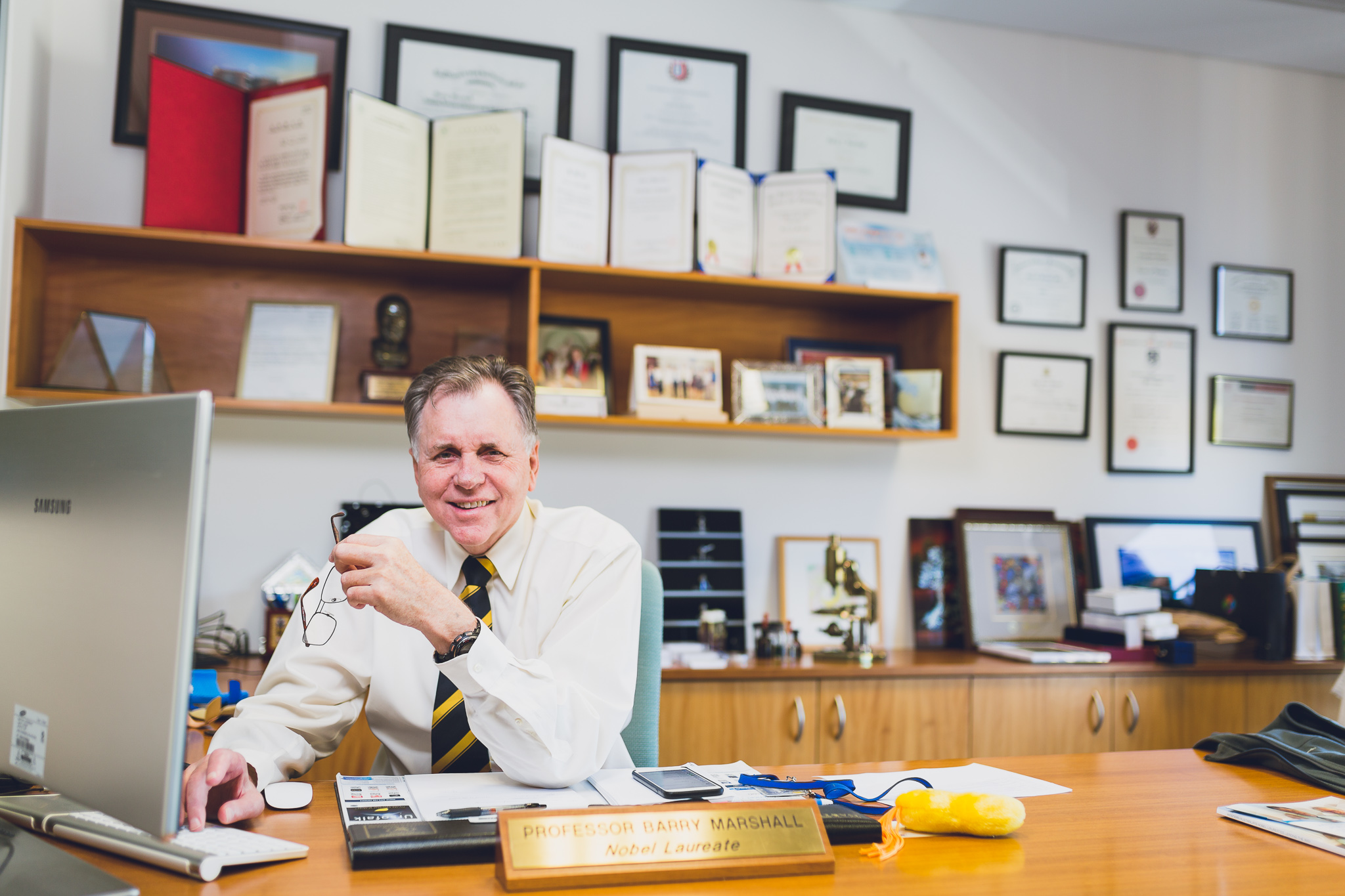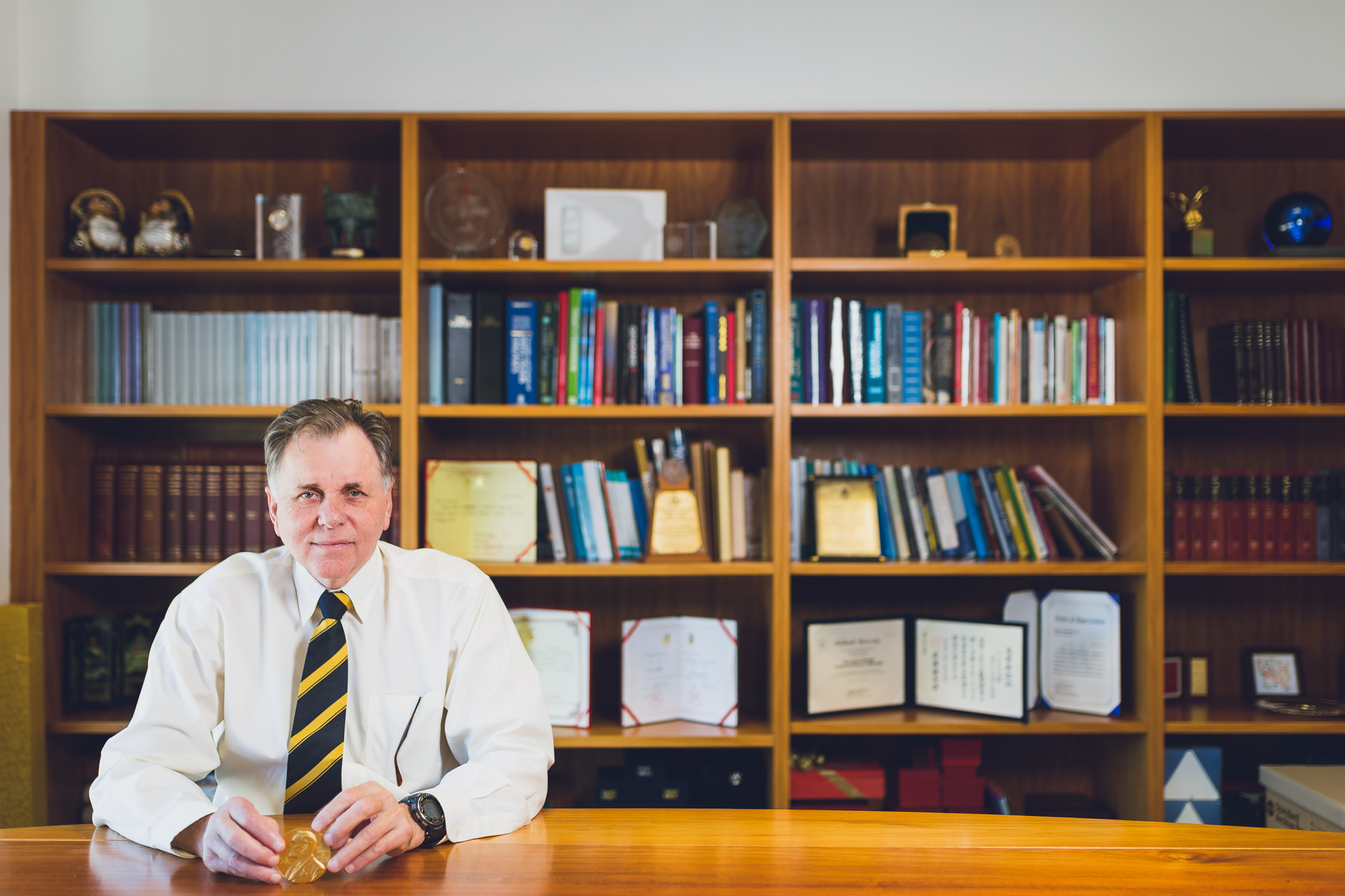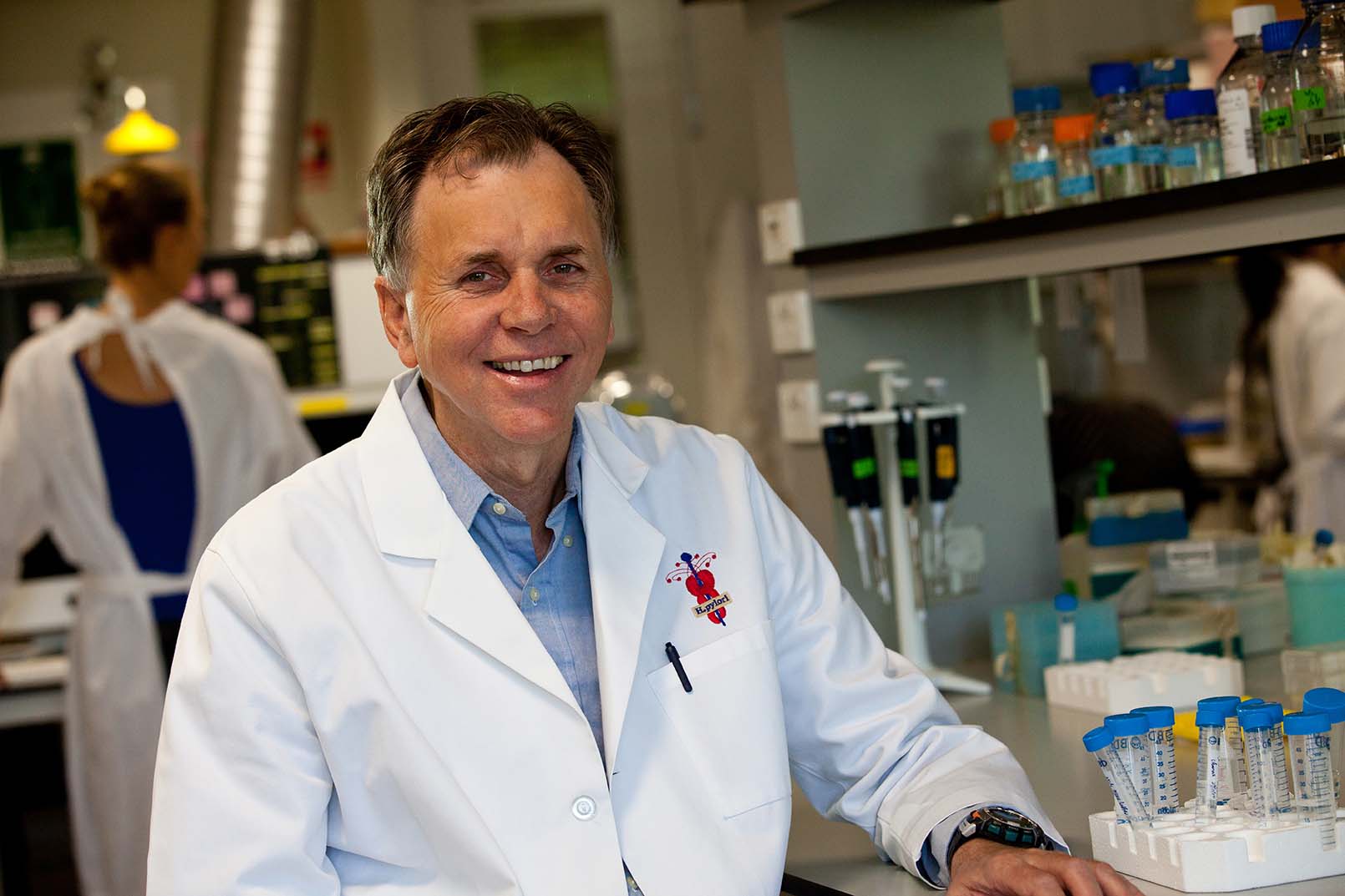Curing Stomach Ulcer

Sponsored by

Sponsored by

Finding new ways to use Helicobacter
From curing ulcers to preventing asthma and allergies, Professor Barry Marshall continues to find ways to use his Nobel Prize winning research to save lives.
In 2005, Professor Barry Marshall was awarded the Nobel Prize for Medicine and Pathology for his co-discovery of the stomach ulcer-causing Helicobacter pylori bacterium. Today, he and his team are using this very same research to develop a new treatment to prevent asthma and other allergies in children.
Professor Marshall’s famous discovery took place during his fellowship at Royal Perth Hospital. It was here that he met his long-time collaborator Doctor Robin Warren, and together they conducted the clinical study that found the Heliobactor pylori bacterium present in one hundred percent of stomach ulcer patients. Interestingly, their study began as a curiosity driven project. “We weren’t looking for the cause of stomach ulcers, however the concept of discovering a bacteria that proved that the medical books were wrong was very exciting to us.” Yet soon enough, their mischievous drive was put to the test.

Refusing to take 'no' for an answer
Despite the ground-breaking nature of their findings, when they were presented to the medical community, they were met with resistance and disbelief. Up to this point, it was considered fact that bacteria could not grow within the stomach’s acidic environment. “When my work was presented, my results were disputed and disbelieved. Not on the basis of science, but because they simply could not be true”, said Professor Marshall.
Determined to prove his research, he took matters into his own hands and consumed a live culture of the Helicobacter pylori bacterium. Within ten days, he developed noticeable symptoms and an endoscopy proved he had developed gastritis, which is considered to be the lead up to developing peptic and duodenal ulcers. This breakthrough not only earned Barry Marshall his Nobel Prize, it was the first step in the development of the Heliobactor treatment, which has saved hundreds of thousands of lives around the world.
Professor Marshall’s research has granted him plenty of international opportunity, including a tenure at the University of Virginia. Yet, he recognises his home of Perth and The University of Western Australia as being key to his work. “In WA, lots of people are willing to help you if they think your project is interesting. Over the years, UWA has helped me secure industry and private funding, fellowships and travel grants to further my work.”

Building upon a breakthrough
Thirty-five years on, Professor Barry Marshall’s discovery of the Heliobactor pylori bacterium continues to drive change within the world of health and science. The Marshall Centre for Infectious Diseases and Research Training was founded in his honour. Here, Professor Marshall and his team carry out world-class infectious disease research and surveillance, and develop vaccines and diagnostic technologies.
His team’s current project is studying the relationship that the Heliobactor has with the immune system. Recent research has found that children with the Heliobactor are forty-five percent less likely to develop asthma. With this as a basis, Professor Barry Marshall and his team are developing a medication that uses the bacteria to rebalance an overactive immune system and prevent asthma and food allergies. With Australia being home to one of the highest rates of asthma and allergies in the world, the research of Professor Barry Marshall is set to improve the lives of many, once again.